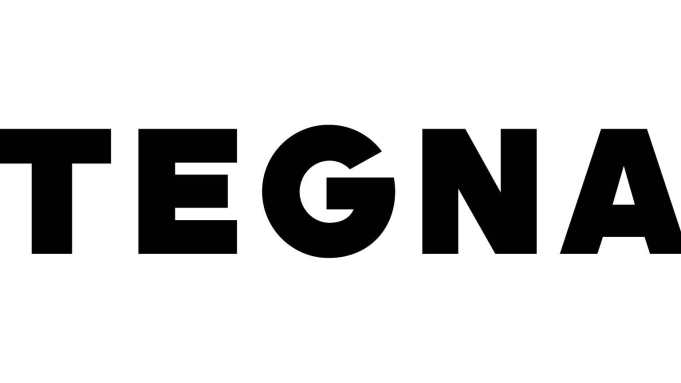Standard General Answers Critics as Comment Period Ends in FCC Review
Standard General said delays in approving its proposed acquisition of Tegna had cost it at least $22 million, enough to hire 422 news employees at the Tegna stations

WASHINGTON, D.C.—Standard General held a media conference on Jan. 23 and filed a response to critics with the FCC arguing that the deal was in the public interest and that delays in approving its proposed acquisition of Tegna had cost it at least $22 million, enough to hire 422 news employees at the Tegna stations.
The joint filing by lawyers representing Standard General, Tegna and the Cox Media Group with the FCC comes at the end of the comment period for the FCC’s review of the proposed acquisition.
Speaking with reporters on a virtual call, Standard General's managing partner and chief investment officer Soohyung (“Soo”) Kim argued that the transaction was in the public interest given their commitments to local news and would advance the cause of diversity in broadcast TV ownership by creating the largest minority-owned, woman led broadcaster.
"We believe in the power and the value of local news and we want to make it better by helping the industry evolve to meet it challenges of the digital age,” Kim said, pointing to his track record in investing in local news. “The track record speaks for itself. We have never reduced local content. We've increased newsroom staffing at our current stations by 20%. In fact, in our 12 year history in broadcasting we’ve added more than 40,000 hours of local news. We've been clear from the beginning that we intend to grow the new operations and last month to be submitted formal commitments to our regulators….not to reduce jobs for at least two years.”
Kim also stressed that they provided regulators with a commitment not to “not to step up retransmission consent rates” and that Tegna’s largest pay TV distributor, Comcast recently “agreed to continue its current retransmission consent agreement.”
“Through these commitments, we're simply formalizing what we intended and communicated at the beginning,” he said. “This transaction is a win for employees, a win for local news gathering, a win for the local broadcast ecosystem, and above all, a win for the communities and our stations will serve.”
Kim also stressed that by going private, they would be able to make the kind of multi-year investments in local news and in transforming the company that would have been difficult for Tegna as a public company.”
The professional video industry's #1 source for news, trends and product and tech information. Sign up below.
“We are willing to make long term investments without risking an adverse market reaction by requiring full controls,” he said. “We can invest for the long term…to meet the challenges of an evolving industry and in doing so, hopefully need a resurgence of local television broadcasting.”
Kim also pointed to the fact that the FCC had just released its annual report on the ownership of broadcast stations that showed only eight of the country’s 1,365 full power commercial broadcast TV stations were majority owned by Asian Americans. “This transaction would create America's largest minority-owned, women-led broadcaster,” he said. “This deal would increase the number of Asian American owned commercial broadcast TV stations by more than 700%.”
Kim and the joint filing with the FCC also stressed that deal would not lead to consolidation in the industry and that the number of stations owned by Tegna after the transaction would be less than it currently owns.
In the joint filing, Standard General addressed complaints by Dish and the ATVA group representing pay TV operators. In FCC filings, the ATVA said that Standard General’s promises regarding retransmission consent agreements did not go far enough.
Those filings included concerns regarding Apollo Global Management involvement in the deal. Apollo is providing some financing for the deal and Apollo’s Cox Media Group is buying some Tegna stations.
The filing noted that worries about Standard General and Apollo working together to boost retransmission consent fees was misplaced because Standard General has 100% ownership of the company and that Apollo would not be involved in the management.
The filing also complained that delays in approving the deal were proving costly.
“The delay in approving the Applications and unlocking the public interest benefits of the Transactions has been harmful to the public, and to the employees and potential new employees of Tegna,” the filing said. “The delay has stalled Standard General’s ability to invigorate newsrooms across the country and left Tegna in limbo, as its employees work in uncertainty and consider how denial of the Applications would increase risks to their job security in a darkening economic time. As has been widely reported, `[m]any media and tech companies have laid off employees in recent weeks as the advertising market sours.’ Tegna, as a publicly traded company without a controlling shareholder, would be impacted more than most broadcasters by the intense pressure of the public markets to cut costs as recessionary concerns mount.”
“While these harms are substantial and apparent, they defy easy quantification,” the filing admitted. “What can be easily quantified, however, is one obvious aspect of the direct economic harm to Tegna. As the Commission is aware, the Merger Agreement contains a `ticking fee’ that each day escalates the price that must be paid to departing shareholders for each share of Tegna stock. As a result, the purchase price of Tegna has been increasing every day since November 22, 2022, and as of today, that increase now exceeds $22 million dollars. To put that in perspective, based on RTDNA’s most current survey of median salaries for television news jobs, 98 including journalists, that $22+ million dollars would be enough to pay a year’s salary for over 420 additional news employees at Tegna stations. That is nearly nine additional news employees per market. Equally dramatic is the impact of further delay. Each day of further delay would be enough to pay a year’s salary for an additional news employees, and the ticking fee will shortly increase by 50%, magnifying this harm.”
George Winslow is the senior content producer for TV Tech. He has written about the television, media and technology industries for nearly 30 years for such publications as Broadcasting & Cable, Multichannel News and TV Tech. Over the years, he has edited a number of magazines, including Multichannel News International and World Screen, and moderated panels at such major industry events as NAB and MIP TV. He has published two books and dozens of encyclopedia articles on such subjects as the media, New York City history and economics.

